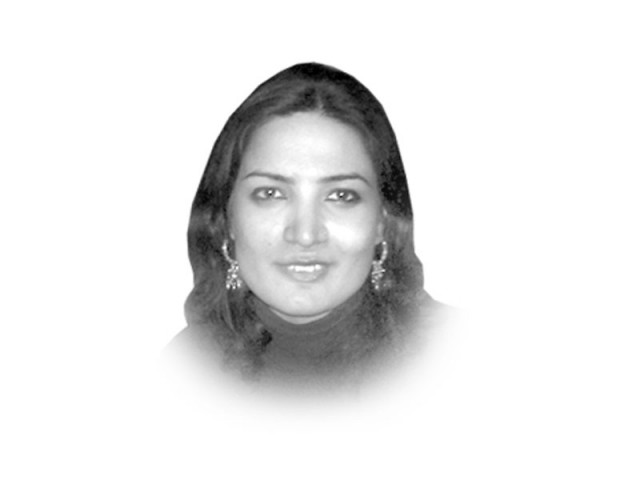Women and political parties
It is about time political parties realise women are a political constituency, their concerns need to be addressed.

Women and political parties
It is a curious paradox. The reasons can be as varied as politics being a classist business in the country to a general lack of women’s access to public spaces. If political parties are scrutinised, most female politicians are either siblings or children of the party heads or are married into the political families. There are hardly any role models, if any, of women political workers who assumed a leadership position after serving their parties over a number of years. Political ascendency on meritorious grounds is a novel phenomenon in Pakistan but more so in the case of women political workers.
With the exception of Bushra Gohar and now Nasreen Jalil, no other party, barring the ANP and the MQM, has women holding pivotal positions in their parties and they, too, need to do a lot more. For example, the MQM’s Rabita Committee has a disproportionate number of men. Further, certain regressive elements in the ANP still bar women from exercising their right to vote — as late as November 2011, when all the eight contestants of the constituency KP-61, Kohistan decided not to allow women to cast their votes.
The importance of being out and about in politics is obvious to anyone with a passing interest in it. The women’s rally staged by the MQM last weekend showed us that politics is far too important a business to be left to men alone.
Pakistan is a country where women are losing ground in public spaces and confining themselves to fit to certain patriarchal norms and boundaries set down for them. In that context, the rally and its message that a strong Pakistan is dependent on independent women was a timely reminder that women need to reclaim the spaces that have receded.
The MQM may have wanted to show the world that Karachi is still their home and other political upstarts have a long way to go before they lay any claims to the city but what also comes across from this is that women as voters and citizenry are important and must be viewed as such by other political powers. The large numbers that turned up also showed us that women should be taken seriously and that many of them want to engage in the political process.
It is about time that political parties realise that women are a political constituency and their concerns need to be addressed and fought for, not only in parliament but also in the party ranks. This is election year, so should we not demand all parties to include issues important to women in their election manifestos and genuinely try to bridge the gap that exists?
In politics, the importance of constituency cannot be overstated. The MQM rally brought to the fore the fact that the constituency of women across ethnic, racial, tribal and class exists and needs to be catered to by all political parties.
Published in The Express Tribune, February 25th, 2012.













COMMENTS
Comments are moderated and generally will be posted if they are on-topic and not abusive.
For more information, please see our Comments FAQ